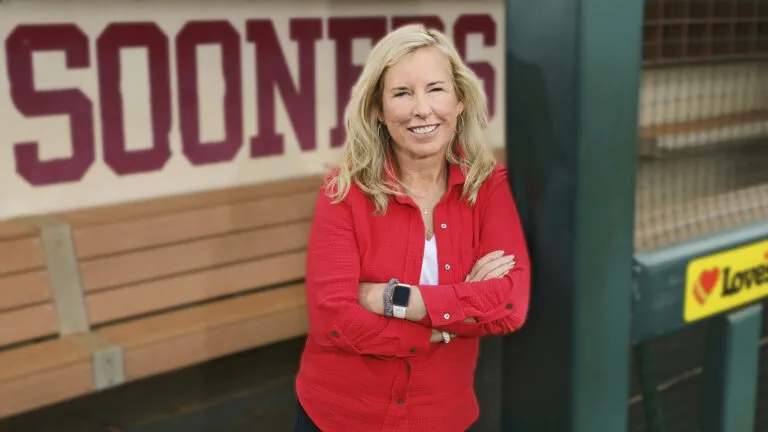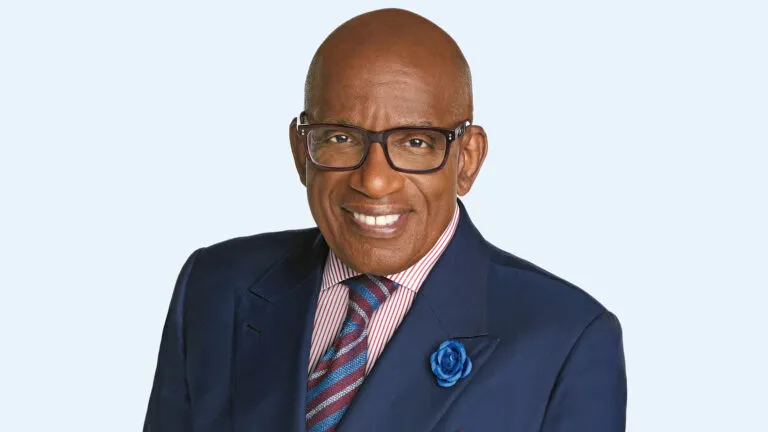“Kitten,” my mother said to me one day, “you should be my mother.”
I was all of 14 years old, the oldest girl in a family of eight kids. I had dreams of becoming an actor and was painting a rhapsodic picture of my future in the theater when Mother offered her outlandish suggestion. “You’re strong, capable, sturdy,” she said. “You would be a great mother.”

2019 issue of Guideposts
We both laughed at the absurdity of it, the sheer eccentricity, but she went on to say how much she missed having a mother. Hers had died when she was very young. “You can’t get over it,” she said. “It’s a gap you never fill.”
She herself was a wonderful mother, though not much of a housekeeper—the laundry proliferated on top of the washing machine, there was never enough toilet paper or soap, and she hardly looked at what she was cleaning. But she was full of laughter and creativity.
An artist at heart, she converted a bedroom in our rambling house on the outskirts of Dubuque, Iowa, into a studio. The bookshelves were filled with biographies of great painters and plenty of opera tapes: Puccini, Verdi, Bellini, Berlioz. The room smelled of varnish, acrylics and coffee. On top of an old trunk were Mason jars filled with brushes, tubes of oil paints, boxes of pastels. On the walls were quotes written in Mother’s loopy script. “Glory be to God for dappled things,” said one, a line from Jesuit poet Gerard Manley Hopkins.
Mother naturally chose him for inspiration—it suited her fascination with the mystical. She’d go on retreats and have deep conversations with the abbess, Mother Columba, looking for answers. She prayed when times were hard, as they often were, and disappeared into her studio. She could be witty and playful, but then a serious or lost expression would appear on her face, as if she were a million miles away.
Formal and traditional in many ways, Mother could also dispense with rules. “Kitten, let’s go see a movie today,” she’d say and take me out of school for the afternoon. She’d pick me up in the family station wagon, and we’d head to downtown Dubuque for a matinee in a half-empty movie theater—Doctor Zhivago, The Sound of Music, Butch Cassidy and the Sundance Kid. “You look like Katharine Ross,” Mother would say, “only prettier.”
I never would have tried being an actress if not for her belief in me. Other parents might have scoffed at my dreams or pushed me toward a more practical path, but Mother encouraged me all the way. When the opportunity came for me to move to New York City for acting school, she was behind it 100 percent. There I got my first big break, a starring role in the soap opera Ryan’s Hope, and Mother became my frequent guest, the two of us doing up the town.
She instilled in me strong values that have proved immutable: honesty, decency, persistence. I might be hyperbolic, but I am incapable of lying. My greatest drive and my greatest pleasure are my work. But I would give it all up if I couldn’t share the fruits of success with those I love—especially my mother.
Sometimes I would come upon her in the kitchen, standing at the sink, staring out at the cornfields, the apple orchard, the evergreens and the statue of Saint Francis—her hands, her entire body, a veritable still life. She would return to the present when I came in, but I yearned to know where she had gone and what she had been thinking.
Tragedy hit our family hard when my younger sister Tessie was diagnosed with inoperable cancer at age 12. Mother nursed her in those last months, hardly leaving her bedroom. One hot July morning, Mother opened the window so Tessie could listen to the birds singing in the orchard during her final hours. It was the last thing she did for her dying daughter. After the funeral, Mother took herself off to the abbey and more time with Mother Columba. She came back gaunt and pale, never quite the same.
If at times she needed a mother, I was glad to fill the role. I wanted to comfort her, reassure her, give her relief. Then many years later, long after I left home, there came a time when the role reversal became more serious and more daunting than either of us could ever have imagined.
I was in Los Angeles, nearing the end of the sixth season of Star Trek: Voyager when Mother called. I could hardly hear her on the other end of the line. “Kitten, I think something’s wrong,” she said. There was a long pause.

“Take your time,” I said. “I’m here.”
“I think I may have had a series of small strokes.” Her voice was small and hesitant. “I fell out of bed, and my glasses broke.”
“Why do you think you had a series of small strokes?”
“It felt like electricity zapped my brain six or seven times…and then I fell out of bed.”
“How are you feeling now?” I asked.
“I think something came out of the wallpaper. Spiders…black spiders.”
I scribbled the words spiders and hallucination on a scratch pad, promising I’d be there as soon as I could.
Did I think Alzheimer’s? Did I suspect something as drastic as that? I couldn’t let my imagination go that far. But I called my youngest brother, Sam, who still lived in Dubuque, and he made an appointment with the best neurologist in town. Mother was calm enough in the waiting room, nestled between us. I just wanted the dread in my stomach to disappear.
In the examining room, the doctor went through a series of questions. What day of the week was it? What year? Who was our president? At one point, Mother glanced down at her right hand, where she had scribbled some notes in pen.
“Are those crib notes, Joan?” the doctor asked. We all laughed. How like our mother to think that she could outsmart a neurologist. The laughter subsided, and the doctor continued. At the end of the questions, he rose from his chair and faced all three of us. He waited until he had my mother’s full attention. “Joan,” he said, “I think there’s a very good chance that you are in the early stages of Alzheimer’s disease.”
He conceded that doctors had yet to fully understand the exact nature or progress of the disease—this was 1999. It was very hard to diagnose with precision, but judging from his experience he was sure she had atypical Alzheimer’s, meaning it wasn’t the hippocampus—the memory part of the brain—primarily being attacked but other parts, which explained the hallucinations.
That night, after a dinner of meat loaf and mashed potatoes, I suggested that Mother might want a bath. We went upstairs, and I poured some bath salts into the tub. Mother immersed herself in the warm water, and then I brought up the issue of her having someone she could trust, a health-care guardian, to protect her and see to her best interests.
She gathered her knees to her chest and rested her cheek there, like a young girl. She dipped her hands in the water and then pointed a finger at me. “You,” she said.
Me. I had a lawyer draw up the papers, and it was done. Something that had been almost a joke between us, a little secret, was now becoming all too true. I would be her mother. I would look after her.
In Alzheimer’s circles, the period between diagnosis and death is sometimes called the long goodbye, and with Mother it was the beginning of a very long goodbye: nine years of watching her decline. There were moments of joy when she seemed quintessentially herself, all her outspokenness and humor prevailing. In one of those early years, we went on a cruise together. On our first evening aboard, we received an embossed envelope with an invitation to dine at the captain’s table. I was seated next to the captain while Mother held court at the opposite end of the table, charming everybody.
Shortly before dinner was served, the captain lifted his glass and launched into a long monologue. Mother yawned loudly. “Mother!” I mouthed. She looked straight at me and said, “But he’s so boring.” She was right too!
On trips home to Dubuque, I’d take Mother for walks. One time, she asked to see new houses being built down the road, her natural curiosity alert and intrigued. But more often there was that sad gaze and the lost expression on her face that I remembered from when I was a child. Her personality would assert itself—then disappear. The last few years she was confined to her bed, her memory completely gone by then.
I had to believe that she knew me and remembered my promise to look after her, but when it came to her final days we called in another mother, Mother Columba, who would be able to say more than I ever could. Wearing her tunic, scapular and cincture, she sat on my mother’s bed and leaned forward, taking my mother’s hand in her own.
“Now, Joan,” she said, “I think you’re very tired and it’s time to rest. You’ve stopped eating and drinking, so you’re showing us that you’re ready to let go of life. Just think, Joan, you’re going to see what you and I have talked about for 30 years. You’re going to see God. You’re going to understand what you’ve been longing to understand your entire life. So don’t worry anymore. Your children are here, and they want you to rest. They want you to know it’s time to say goodbye.”
Maybe Mother would finally find whatever she was searching for those times I’d caught her staring out the window, looking beyond the statue of Saint Francis.
She was laid to rest in a casket that had been designed by Sam and handcrafted by Trappist monks.
Since then, I have become an advocate for others who see their loved ones suffer from this terrible disease. I have become friends with Dr. Karen Ashe, a professor of neurology at the University of Minnesota, who’s doing critical research on Alzheimer’s. It’s slowgoing, but little by little we’re learning more. I give what I can, and I urge others to give so that we may come up with a cure.
I also urge anyone who has a loved one with Alzheimer’s to join a support group. The Alzheimer’s Association has groups meeting all over the country. It’s important to know that you’re not alone, to share stories, to talk about treatment, to become part of a larger caregiver community.
No caregiver ever does it alone—I hardly did. But I feel lucky that I had the chance to show my mother how much I loved her. To give back what she gave me and then some.
For more inspiring stories, subscribe to Guideposts magazine.






